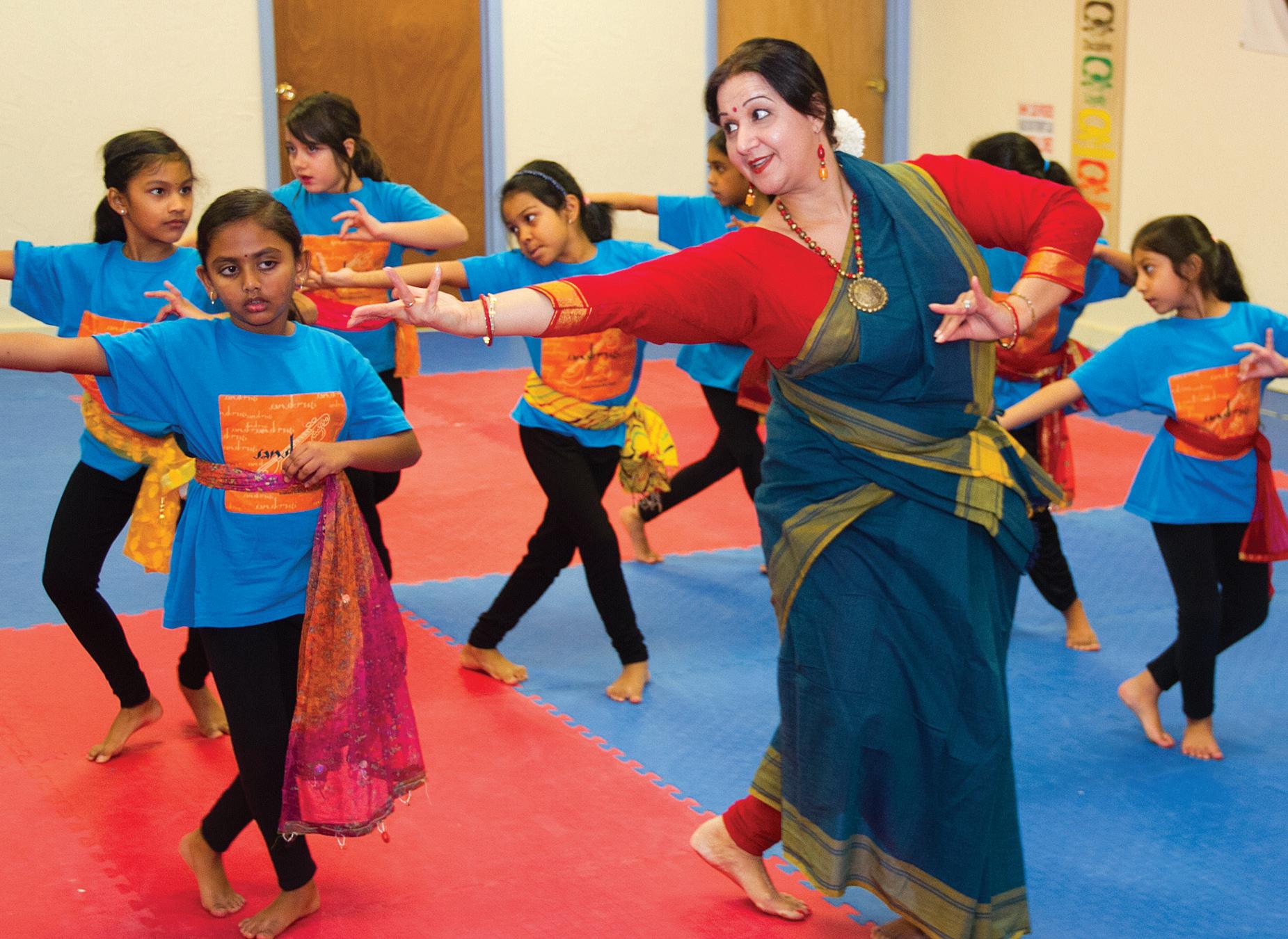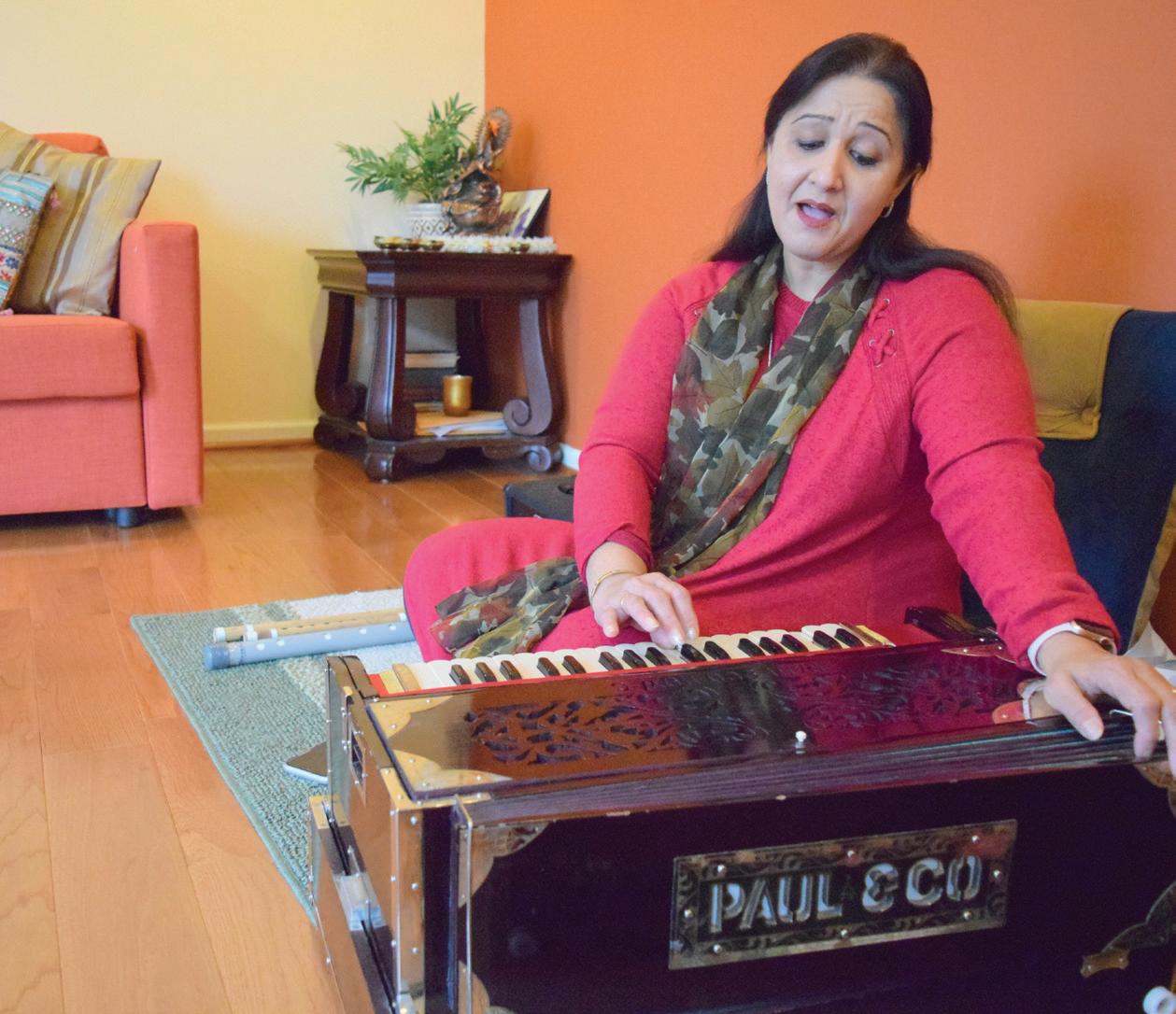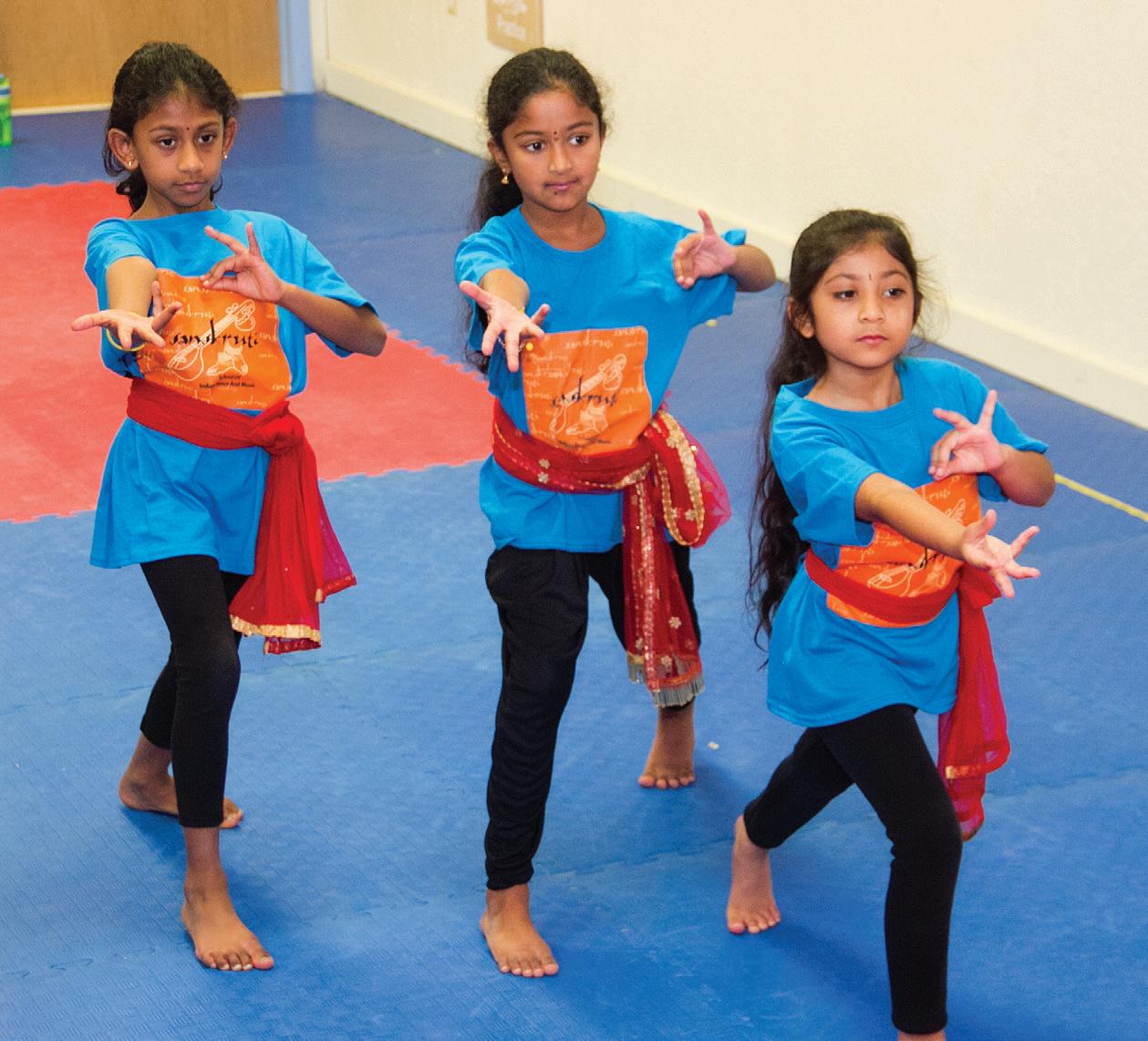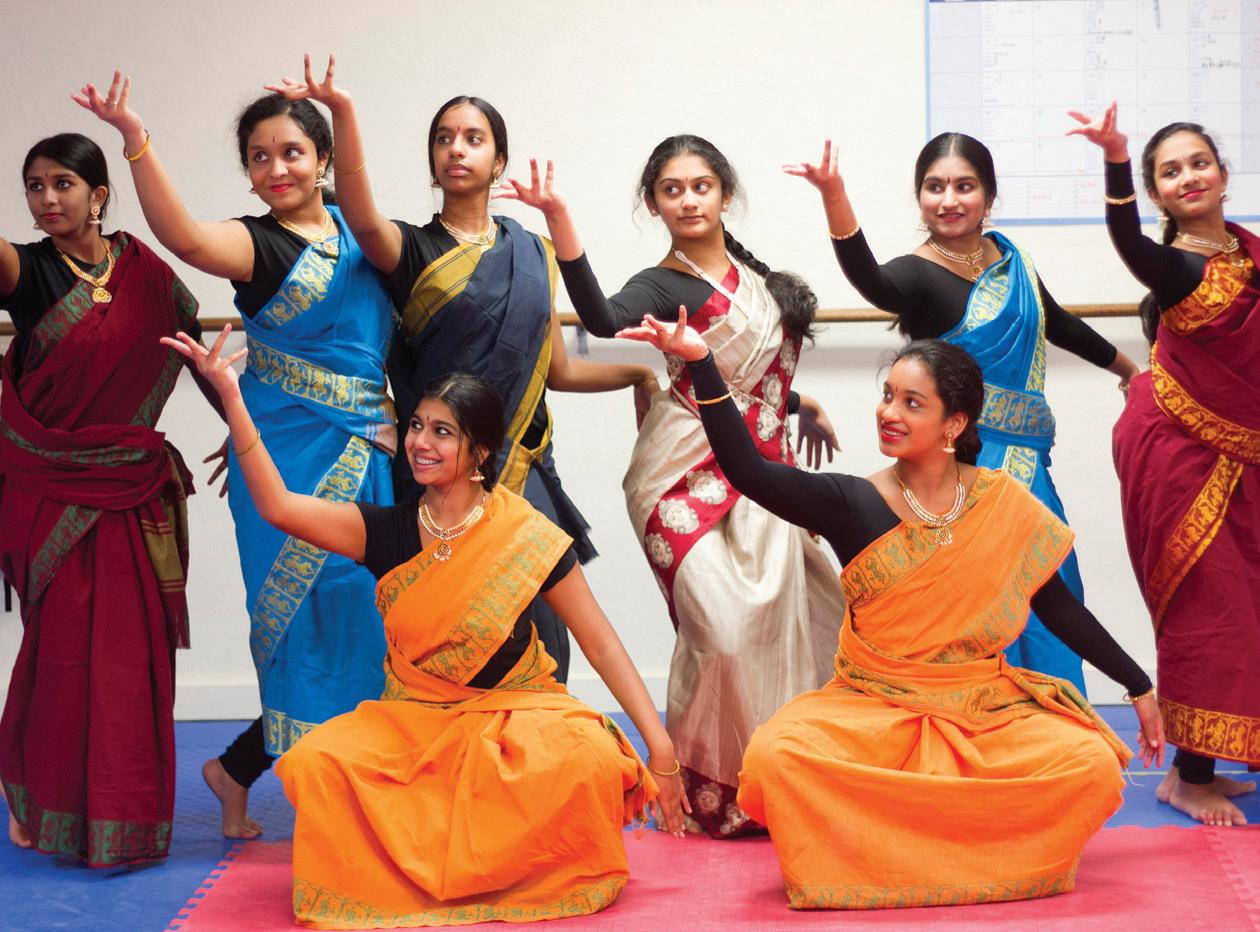
2 minute read
BEYOND LANGUAGE
Founder of dance and music school follows family tradition
by Andrea Iglar
Shambhavi Desai won’t ever forget the day that three generations of her family danced together. “That was one of my highlights, to be able to share the same stage as my mother and my daughter,” she said. “It was a feeling I cannot explain.”
The South Fayette resident is founder and artistic director of Sanskruti School of Indian Dance and Music, following in the footsteps of her mother, Tani Desai, who owns a dance school in India.
Music and dance are traditions in Ms. Desai’s family. She first learned the arts from her mother and later taught her own daughter, Moha.
“It’s the best and the worst thing to have a parent as your teacher, and my daughter would agree with that 100 percent,” Ms. Desai said with a laugh.

Dance instructor Shambhavi Desai, founder of Sanskruti School of Dance and Music, holds her hand in a gesture suggesting a bloomed flower.
Harry Funk
From ages 4 to 16, Ms. Desai was formally trained by her mother and then continued learning from an internationally acclaimed guru. She earned two master’s degrees—one in business, and the other in dance.
Today, she teaches Indian classical dance and music, Indian folk dance, and contemporary dance to about 130 students using rented space in neighboring Cecil. While most of the students are youth, the school also offers training to adults.

Beginning students practice a Bharatanatyam dance step, or adavu, in which they learn to cross their feet.
Harry Funk
She taught music and dance in India, Illinois and the Pittsburgh region, and soon after moving to South Fayette 20 years ago, she founded Sanskruti, whose name is a Hindi term meaning “cultural heritage.”
In addition to dance, Ms. Desai teaches voice and harmonium, an instrument that has a keyboard and accordionlike bellows.

Shambhavi Desai sings and plays harmonium at her home in South Fayette.
Andrea Iglar
Students perform at festivals, workshops and special events such as South Fayette Community Day.
Dance and music are creative ways to become exposed to Indian culture, and learning from one’s neighbors in this increasingly diverse township makes the community stronger, Ms. Desai said.
“We have a lot to share with each other,” she said.
Music and dance were second nature to Ms. Desai during her youth, and that hasn’t changed. Her husband Priyadarshi, an engineer, also is trained in music; her mother-in- law is an Indian classical singer; her parents’ families include many musicians and artists; and her son, tenth-grader Amaye, plays flute at South Fayette High School. Her 20-year-old daughter is attending Penn State for engineering, but the arts remain important to her.
“Dance and music are a part of our daily lives,” Ms. Desai said. “It’s a way of life.”

Classmates (left to right) Riya Sarvanan, Veena Juluru and Lalitya Saggi learn a dance step.
Harry Funk
In a fast-paced world with so many distractions, students benefit from learning the arts, she said.
Like ballet and other classical dance forms, the curriculum for Indian classical dance, or “Bharatanatyam,” is highly structured, including regular lessons, annual exams and performances that culminate in the student’s solo dance debut.
“For all that, you really need a lot of grit and faith and focus—faith in your teacher and yourself—and of course hard work,” she said.
"It’s really nice to see students stick to it and the parents encouraging them.”

Advanced students demonstrate the ending pose of a group dance.
Harry Funk




